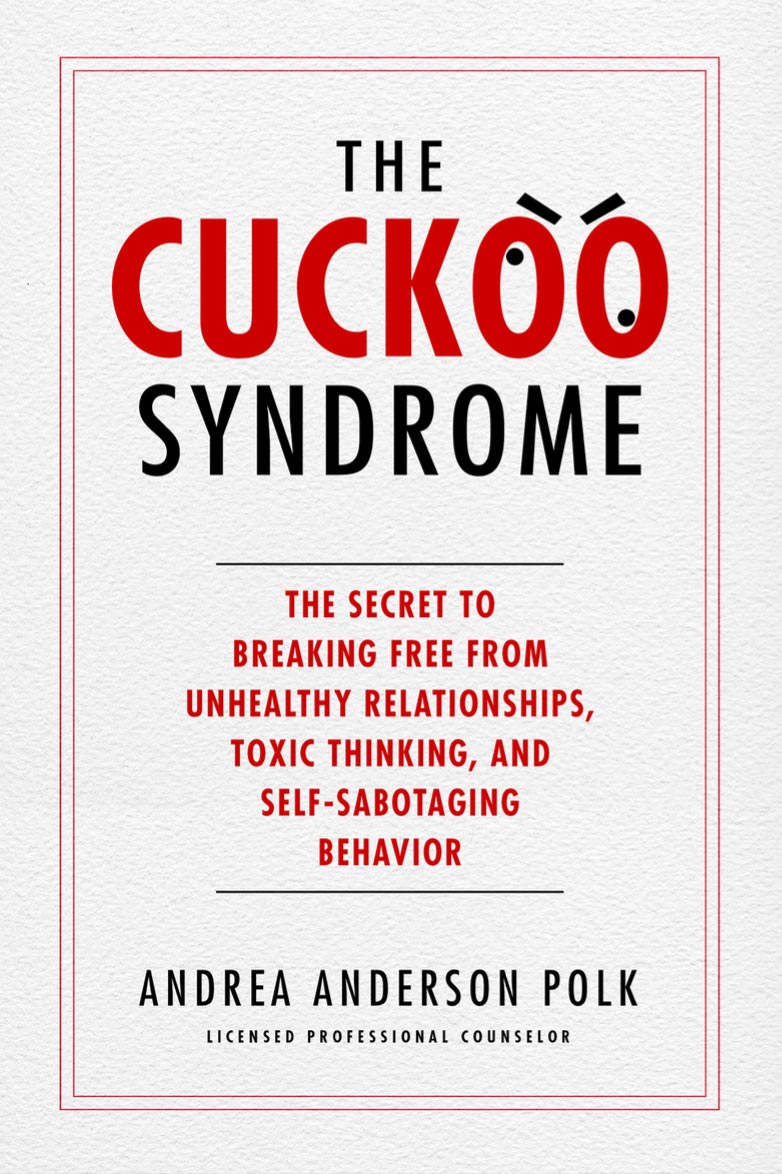Toxic relationships can be tricky and not easily recognized.
– Andrea Anderson Polk, Licensed Professional Counselor
As a professional counselor who has spent fifteen years studying the human condition, I recognize groups of symptoms that collectively indicate a predictable yet invisible pattern of unhealthy relationships that lead to unnecessary suffering.
These patterns can deceitfully and subtly erode our careers, ministries, and most intimate relationships, including our relationships with ourselves. The patterns can show up as chronic neglect of self due to consistently taking care of someone else, receiving little or no reciprocation, or saying yes when you really mean no.
Ultimately you find yourself…
lost, wandering through life with haunting confusion, lingering emptiness, and persistent grief. Toxic relationships are confusing and painful and overtake your life, so you take care of their needs and ultimately lose yourself. The relationship becomes your purpose because your life revolves around them, and your purpose – desires, hopes, and dreams gets tossed to the side.
Are you thinking of a particular relationship that creates a similar cycle of suffering in your life? Perhaps a relationship that once brought you joy is now bringing you hurt, or an already complicated relationship has now become harmful.
Here are ten questions to ask to understand if you are in a toxic relationship.
| 1. | Is there someone in your life trying to monopolize your time and consume your energy? |
| 2. | Is there someone in your life who is more of a taker than a giver and does not give back to you in the same way? |
| 3. | Is there someone in your life who leaves you feeling overwhelmed because your purpose in life revolves around them, and your voice, feelings, and needs are not mutually acknowledged? |
| 4. | Is there someone in your life with whom you cannot have a rational conversation because simple things become very complicated? |
| 5. | Is there someone in your life who leaves you feeling confused and misunderstood, but you cannot put your finger on exactly how or why? |
| 6. | Is there someone in your life who you feel manipulates you, and your gut tells you something is wrong? |
| 7. | Is there someone in your life for whom you feel responsible carrying the emotional weight of the relationship? |
| 8. | Is there someone in your life you feel has been gradually deceiving you for some time, and you realize this person is not who you thought they were? |
| 9. | Is there someone in your life who is never satisfied, no matter how much you try to love, help, and please them? |
| 10. | Is there someone in your life who twists the truth, avoids dealing with facts, and becomes accusatory, critical, or overly emotional when you try to point it out? |
If you can relate to any of these questions, who is the person you are in a toxic relationship with?
You might not be in a toxic relationship if you answered no to all of the questions. Instead, you might have toxic thinking or self-sabotaging behavior. Alternatively, perhaps you realize you display some toxic behavior in your relationships.
Unhealthy relationships with…
a friend, spouse, mentor, pastor, counselor, sibling, parent, colleague, boss, or significant other can show up unexpectedly. It can also be a role you adopt based on a situation or event where you have taken on more responsibility than you are capable of handling—roles that allow you to feel needed and loved, such as caretaker, the always-on-call person, the fixer, the peacemaker, or the rescuer.
You may find yourself saying things like this: “I’m always the person who . . .” For example, maybe you are the one who organizes the carpool, schedules all the Zoom calls, does all the household chores, pays the bills, or runs all the errands.
Perhaps your spouse suffers from a chronic illness, and you are going beyond your capacity to take care of them because you believe your needs are not as important as theirs since you are not the one who is sick. You falsely believe it is your sole responsibility to carry the entire load.
Deep down, you feel…
resentful and strongly desire to be alone and numb out. Our choices and associated behaviors offer some form of benefit. We would not be operating in a situation where we are absorbing the responsibility for another person or group of people. If you are the pleaser, caretaker, peacemaker, rescuer, or fixer, ask yourself, What am I getting from this role? Perhaps you feel worthy, important, or needed. Ask yourself, “What does this role allow me to avoid?” Maybe you avoid painful emotions such as the guilt of saying no and not being there for someone, or you avoid the fear of disappointing people you care about, or you are avoiding your complex issues.
Here is an example.
| It’s the holiday season. You discuss with your spouse and decide that for Christmas this year, you will vacation alone with your children to enjoy a relaxing change of pace. You want to spend some much-needed fun time together as a family. You want to take a much-needed break from the hustle and bustle to sit on a beach instead of sweating over a hot stove only to engage in the same religious and political conversations year after year. You finally muster up the courage to tell your extended family you will not host Christmas this year. They respond by trying to guilt-trip you into changing your mind. They are shocked and appalled at your decision. How can you break this precious family tradition? After all, you have “the nice house and space for everyone, and you are centrally located, making it so much easier on everyone.” Your family goes on and on about how their lives are more stressful than yours and how they need a break. “Why can’t you vacation this summer instead of taking time off over the holidays?” After engaging with them and trying to maintain your boundaries and state your needs, you feel the emotional weight of responsibility to make everyone happy. So you tell your spouse, “Let’s just host one more year.” |
These decisions seem minuscule at first, but when the pattern continues in your relationships (chronic caretaking, putting other people’s needs above your own, having no boundaries), you eventually find yourself depleted and joyless, and your sense of self slowly erodes.
Every relationship requires effort, time, energy, and attention, which need fruits of the Spirit such as love, joy, peace, patience, kindness, goodness, faithfulness, gentleness, and self-control—characteristics found in a healthy relationship. Most importantly, the relationship is mutual because both people are equally attentive to each other’s needs, and they sacrifice and compromise accordingly.
The problem with a toxic relationship…
is that you deceive yourself into thinking you must do all the work to keep the relationship going. You continue to nurture, care for, and feed the toxic relationship, which becomes your primary responsibility. The most important thing to remember about a toxic relationship is that they are imposters packaged in a seemingly good and healthy relationship, disguising themselves as the real thing and mimicking who they think you want them to be.
The issue arises when the other person in the relationship perpetually uses you, takes advantage of your kindness and openness, and does not reciprocate. Through a deceptive process, you have falsely come to believe you are being empathetic, patient, forgiving, and kind when the truth is that you are not long-suffering.
You are suffering.
If you realize you are in a toxic relationship or more than one toxic one, let me reassure you that you are not alone and there is hope. You may feel stuck in a toxic relationship, but there is a strategy you can follow that will help you learn how to do the necessary work to break free and experience healing.






Responses